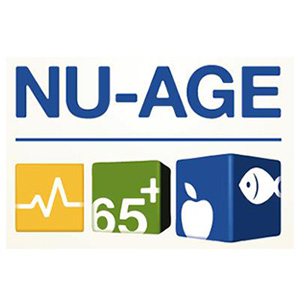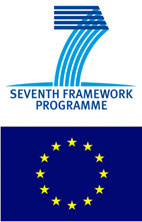NU-AGE

- Start date: 1 May 2011
- End date: 30 April 2016
- Overall budget: € 11.947.661
- EU contribution: € 8.998.889
-
Coordinated by: University of Bologna
- Project website
NU-AGE (New dietary strategies addressing the specific needs of elderly population for an healthy ageing in Europe) is a large multidisciplinary consortium (30 partners, from 16 EU countries) involving nutritionists, biogerontologists, immunologists and molecular biologists from the most prestigious institutions in Europe, 5 large food industries, 8 traditional food companies and 1 biotech SME, SPES GEIE and FooDrinkEurope, covering the SME Food Industrial Associations of 13 European countries and the European Confederation the food and drink industry. NU-AGE aims are:
1. to counteract the physical/cognitive decline occurring in the elderly as a consequence of the progressive alteration of different organs/systems (immune and cardiovascular systems, bone, brain, muscle and intestine) by one year elderly-tailored whole diet intervention on 1250 healthy elderly men and women aged 65-79 years (half diet, half control) from 5 different EU regions;
2. to assess the effect of the newly designed food pyramid specific for 65+ EU citizens on the different organs/systems using a large set of biomarkers related to nutrition and ageing, with particular attention to the low grade, chronic, systemic inflammatory status named inflammageing, a major risk factor for common age-related diseases;
3. to perform in a subgroup of 120 subjects in depth studies and high throughput “omics” to identify cellular/molecular targets/mechanisms responsible for whole diet effect;
4. to perform genetic and epigenetic studies to assess the role of individual variability on the response to diet;
5. to adopt an integrative comprehensive approach (systems biology) to analyze the whole set of data. The results of dietary intervention will be used to develop elderly-tailored prototypes of functional foods and to improve traditional foods. The research activity will be accompanied and followed by a strong activity of dissemination and industrial exploitation to support EU strategies on nutritional recommendations, thus contributing to the implementation of legislation related to nutritional and health claims for elderly in Europe.
Related Documents

